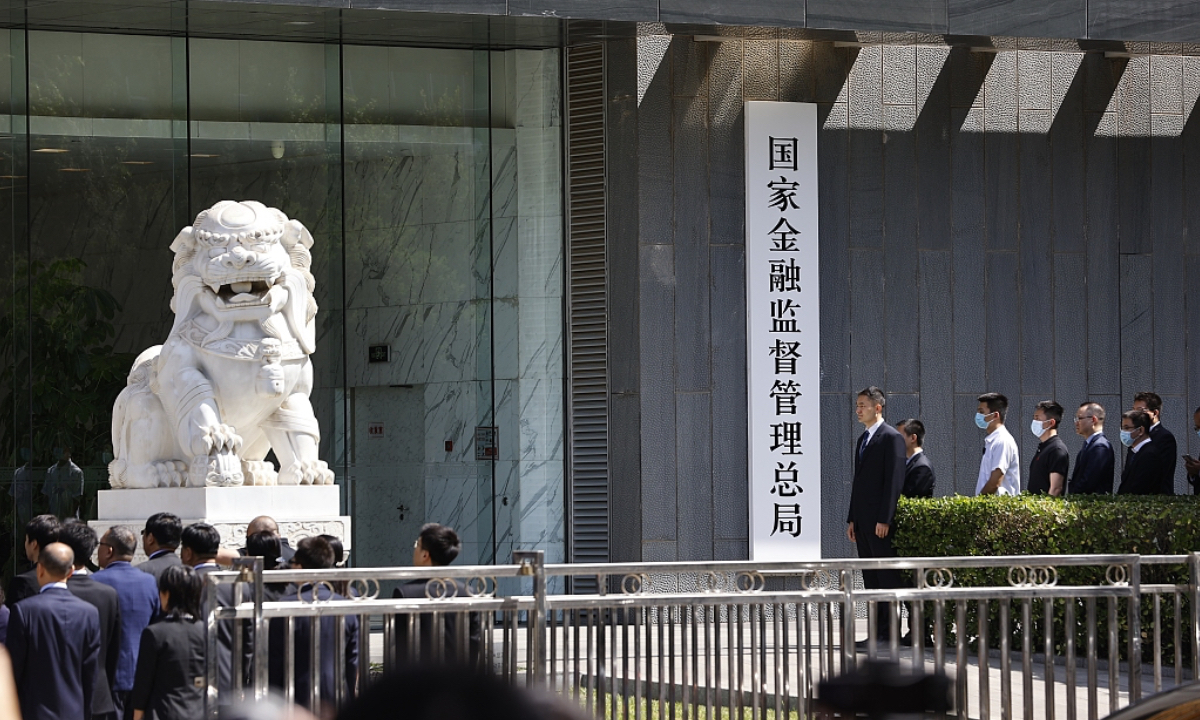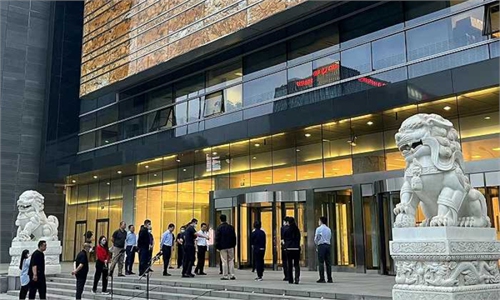National Financial Regulatory Administration is inaugurated in Beijing, to strengthen financial sector oversight, prevent systemic risks

China's National Financial Regulatory Administration Photo: VCG
Vice-Premier He Lifeng, central bank governor Yi Gang, China Securities Regulatory Commission Chairman Yi Huiman, and the Party chief of the new financial regulator, Li Yunze, attended the opening ceremony.
The official website of the administration was also launched.
The formation of the NFRA and the optimization and adjustment of the institutional responsibilities in the field of financial supervision are of great importance for strengthening and improving modern financial supervision system, as well as addressing the long-standing contradictions and problems in the financial field, the Xinhua News Agency reported.
"From March when the reform plan was announced to today's NFRA inauguration, only two-month preparation reflected the efficiency of the country's financial sector regulators," Dong Shaopeng, a senior research fellow at the Chongyang Institute for Financial Studies at the Renmin University of China, told the Global Times on Thursday.
Li Yunze said at the ceremony that the government will comprehensively strengthen financial organizations' institutional supervision, behavioral supervision and functional supervision, providing strong support and strong guarantee for building a new development pattern and promoting the country's high-quality development.
The NFRA will make every effort to fully implement the "Three major tasks" -- serving the real economy, controlling financial risks and deepening financial reform, Li said at the ceremony.
In accordance with the law, the NFRA will bring all types of financial activities under supervision and strive to eliminate regulatory gaps and blind spots, actively creating a good financial legal environment and safeguarding the legitimate rights and interests of the people, in a bid to ensure the country's financial security, Li noted.
Directly under the State Council, the cabinet, the NFRA is in charge of regulating the financial industry except the securities sector. It is established on the basis of the previous China Banking and Insurance Regulatory Commission, and certain functions of the People's Bank of China and the China Securities Regulatory Commission have been transferred to the new administration, according to Xinhua.
Experts noted that the new financial regulatory system will fill regulatory gaps and move towards comprehensive financial supervision and do its utmost to prevent any systemic risk from happening and harming Chinese economy.
Chinese policymakers have been thinking deeply about the country's financial system and "the impact of the US financial system" on the country, how to strike a balance between the systems, and how to better prevent risks, serve the real economy and promote tech innovation, Dong said.
The collapse of Silicon Valley Bank in the US in early March is a "systemic problem", which prompted China to set eyes on "the safety of the real economy and the financial sector viability", and the NFRA may act as "a guarantee" to China's financial sector development, Dong said.
Also, companies involved in financial consulting are placed under the management of the new administration, according to Dong.
Recently, some foreign media alleged that China is conducting an industry-wide clampdown and cautioning foreign businesses operating in Chinese, as the country launched a law enforcement action against Capvision, which is believed to have "induced domestic experts in key fields," including the defense industry and high technology, to offer intelligence and played into the hands of overseas forces, according to a report from China Media Group.
Dong noted that China's policy does not target any particular institution, urging foreign media outlets not to engage in malicious interpretation.
"Some organizations are doing illegal things in China under the guise of consulting, and we have the right to deal with them according to Chinese law," he added.
Global Times


